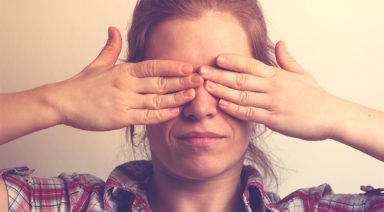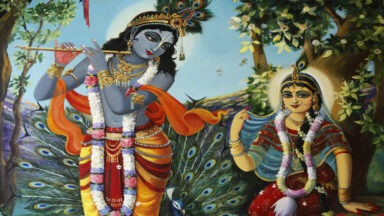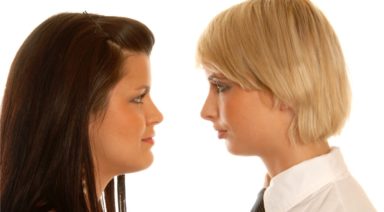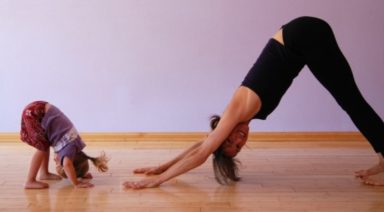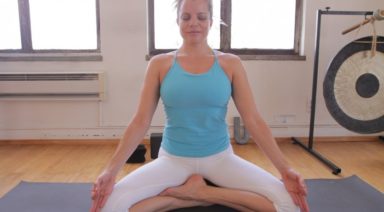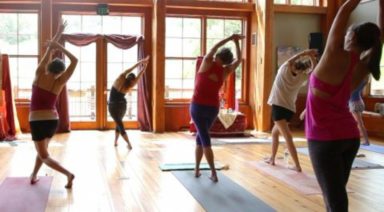What’s your Ayurvedic dosha? Take this quiz and find out
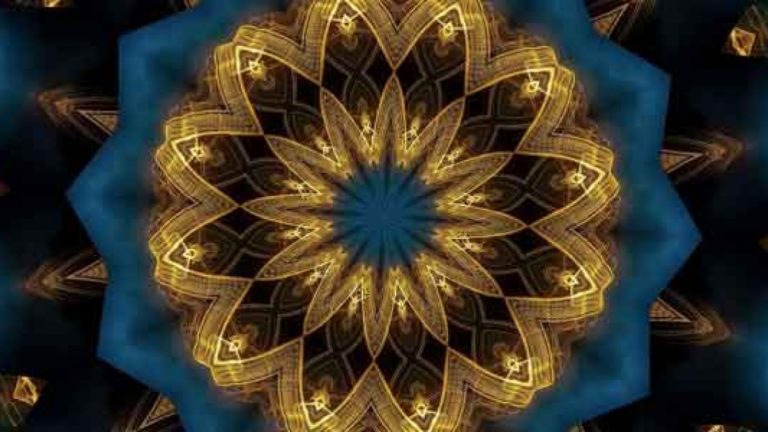
The balance of your Ayurvedic doshas, also known as prakruti, is a key part of understanding your holistic health.
Doshas are the three energies found in nature, and also in the human body. They are broken down into three types: vata, pitta and kapha. The doshas are responsible over our bodies, minds, emotions, and thoughts. From birth, we are each individually made with a very specific blend of the five basic elements: ether, air, fire, water, and earth. That unique blend is your prakruti, or what uniquely constitutes your individual body, and can be broken down by a combination of the three doshas: vata (ether + air), pitta (fire + water), and kapha (water + earth).
The three doshas are the building blocks to understanding our prakruti, and once you understand which is your dominant dosha, you can know what your balanced state looks like. This is vital, as through this lens you can spot exactly when your body goes out of balance, and how to bring it back into balance. Humans are being of nature, constructed from the same five elements, and thus can use the opposing elements as needed to bring us back into balance.
It all hinges on knowing your doshas, however. You can get a general sense of where your dosha balance lies, and go from there to correct the problems. You can even seek out the help of an Ayurvedic practitioner, who can take a look at your insights and prescribe anything from food and herbs to a new lifestyle. Thanks, Ayurveda!
Tally up the number of v’s, p’s, and k’s you receive (standing for vata, pitta, and kapha), whichever you have the most of is your dominant dosha:
1. Physique
- v) I am a slender person and I hardly gain weight
- p) I am medium build
- k) I am well built and I gain weight no matter what I do
2. Skin
- v) My skin is dry, thin, and itches often
- p) My skin looks flushed; I have lots of moles and freckles on my body
- k) My skin is smooth and soft, it looks pale sometimes
3. Hair
- v) My hair is dry, thin and brittle
- p) My hair is neither dry nor oily (for men: I have a receding hairline)
- k) My hair is thick, full, lustrous, and slightly oily
4. Face
- v) My face is oval
- p) My face is triangular (pointed chin, prominent jaw line)
- k) My face is round
5. Eyes
- v) My eyes are small; they feel dry often and have a bit of dullness (usually brown)
- p) My eyes are medium in shape; sharp & penetrating (usually blue)
- k) My eyes are big and round in shape, full eyelashes
6. Hands
- v) My hands are generally dry, rough; slender fingers; dry nails
- p) My hands are generally moist, pink; medium fingers; soft nails
- k) My hands are generally firm, thick; thick fingers; strong & smooth nails
7. Joints
- v) My joints are small, prominent bones, and often crack
- p) My joints are medium and loose
- k) My joints are large, sturdy, with lots of muscle surrounding
8. Activities
- v) I am a very active person (always on the go, mind constantly thinking)
- p) I like to think before I do anything
- k) I am steady and graceful (I don’t like to rush)
9. Actions
- v) I walk fast and talk fast
- p) My actions are very thoughtful and precise
- k) I like a slower pace and I take my time to accomplish things
10. Sleep
- v) I do not sleep soundly at night. I tend to toss and turn. I wake up early in the morning
- p) I am a light sleeper but if something wakes me up, I can go back to sleep easily
- k) I am a heavy sleeper
11. Appetite
- v) Varies, sometimes I feel hungry, sometimes not, I feel anxious if I don’t eat
- p) I always feel hungry. If I don’t eat I get irritable and angry
- k) I don’t feel very hungry. I can go without food easily for a day
12. Bowel Movement
- v) I tend to have constipation and can go a day or two without a bowel movement
- p) I am regular and sometimes stools are loose (tend to get diarrhea)
- k) I have no problem. I wake up to go to the bathroom.
13.Voice
- v) My voice tends to be weak or hoarse
- p) I have a strong voice, I may get loud sometimes
- k) My voice is deep, has good tone
14. Emotions
- v) I am a born worrier, I often feel anxious and nervous
- p) If things don’t happen my way, I feel irritable and angry
- k) I am a happy person, very caring and loving
15. Weather Preference
- v) I love warm and humid weather
- p) I enjoy cool weather, I dislike a warm climate
- k) I like warm but dry weather
16. Sweating
- v) I sweat little but not much
- p) I sweat profusely and it might have an unpleasant odor
- k) I never sweat, unless working very hard
17. Memory
- v) I remember quickly and forget quickly
- p) I remember what I want to remember and never forget
- k) It takes me a while to remember, but once I do I never forget
18. Actions
- v) I tend to be spontaneous
- p) I am a list maker. Unless I plan, I don’t do anything
- k) I don’t like to plan, I prefer to follow others
19. Stamina
- v) I like to do things in spurts and I get tired very easily
- p) I have medium stamina
- k) I can work long hours and maintain good stamina
20. Mind
- v) My mind gets restless and racing easily
- p) I get impatient easily
- k) It takes a lot to make me mad. I usually feel very calm
21. Decision Making
- v) I change my mind more often and will take time to make a decision
- p) I can make a decision easily and stick with it
- k) I want others to make the decisions
22. Personality
- v) “Is it too late to change my mind”?
- p) “It’s my way or the highway”
- k) “Don’t worry, be happy!”
23. Sports
- v) I like action
- p) I like to win
- k) I like to have fun
24. Health Problems
- v) My symptoms are mainly pain, constipation, anxiety and depression
- p) I often get skin infections, fevers, heart burn, and hypertension
- k) I tend to get allergies, congestion, weight gain and digestive problems
25. Hobbies
- v) I like art (drawing, painting, dance) and travel
- p) I like sports, politics, and things that get my adrenaline pumping
- k) I like nature, gardening, reading, and knitting
How Your Emotional State Relates to the Ayurvedic Doshas

Ayurveda is the science of life. It is a holistic form of wellness that uses natural, earth-based wisdom to promote individual balance and health. Ayurveda teaches that there are three universal intelligences at work in the macrocosm of the universe and in the microcosm of our bodies. These intelligences are called the doshas. The doshas are made up of a combination of the five great elements: earth, water, fire, air, and ether. These five elements tend to group together into pairs that create the doshas: Vata, Pitta, and Kapha.
Vata
Vata is likened to the combination of air and ether; it is light, dry, cold, and changeable. It rules everything in the body and the universe that has to do with movement, transportation, and communication. Our speech, for example, is ruled by Vata dosha as is the motion of our intestines during peristalsis.
Pitta
Pitta is the combination of the fire element with a bit of moisture. It is the intelligence that governs everything that transforms, digests, and metabolizes. It governs all that transforms in our bodies; the enzymatic action of the stomach, the power of our sight, and our metabolism are some of the areas of the body ruled by Pitta dosha.
Kapha
Kapha dosha is likened to earth and water. It is heavy, cool, and stable. It rules our immunity, our strength, and our stability. Kapha dosha also rules the watery places in the body, the lining of the stomach, and the inside of the mouth, as well as our overall strength and immune system.


